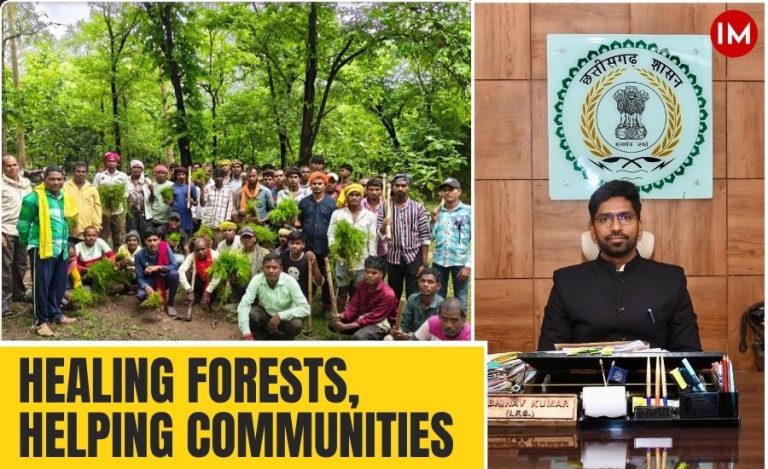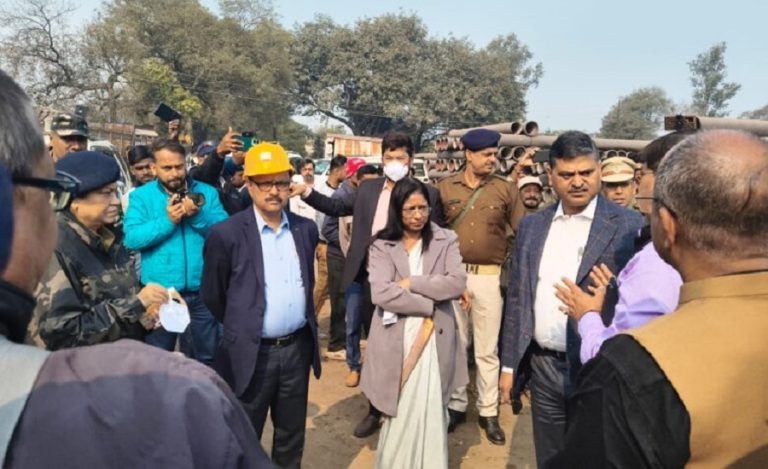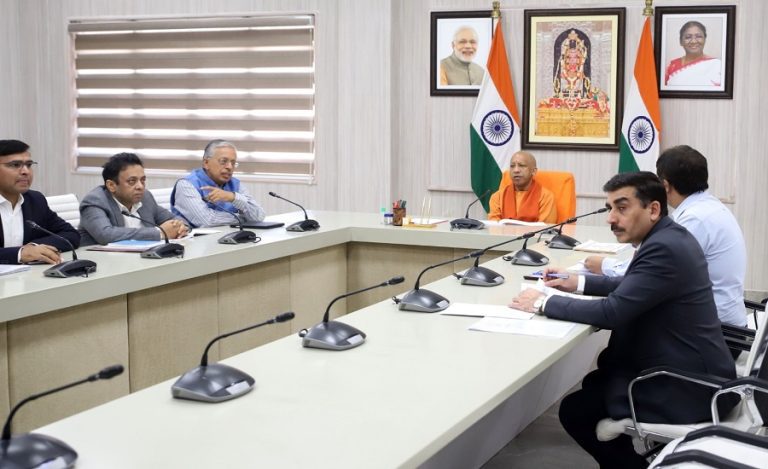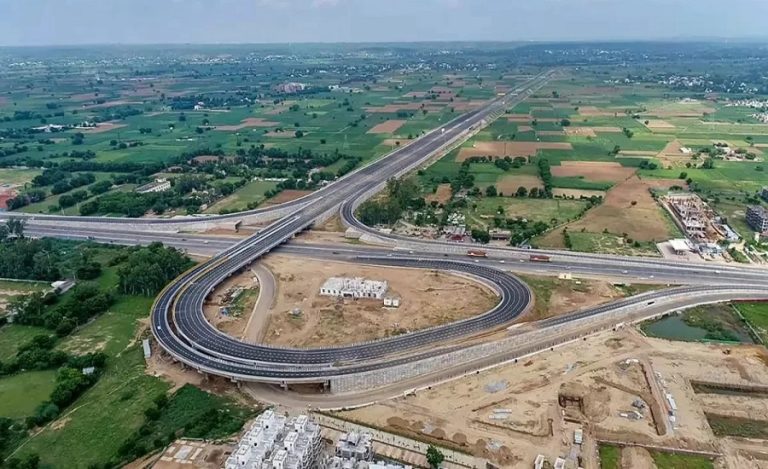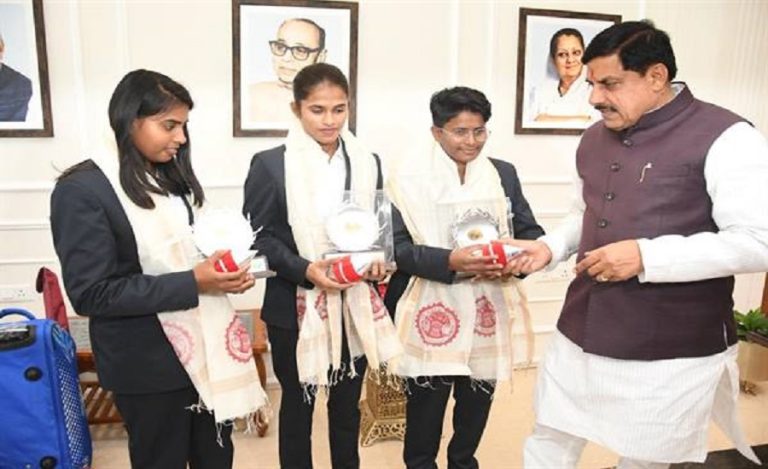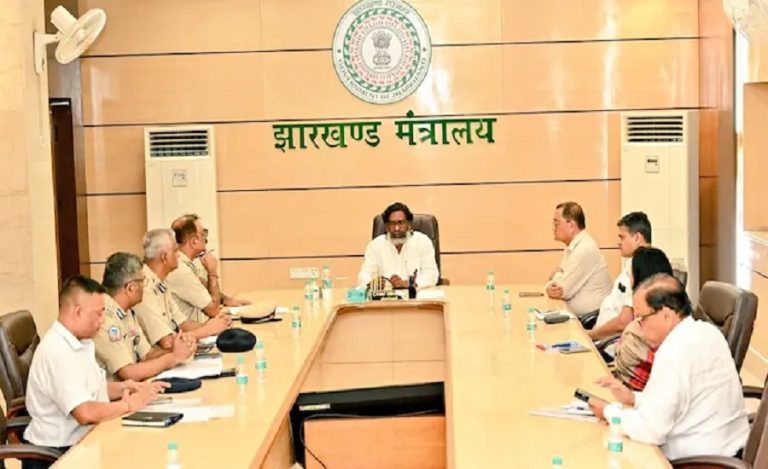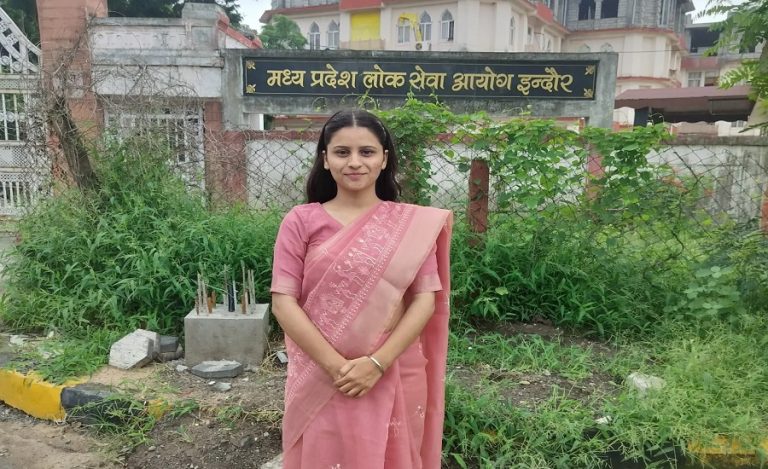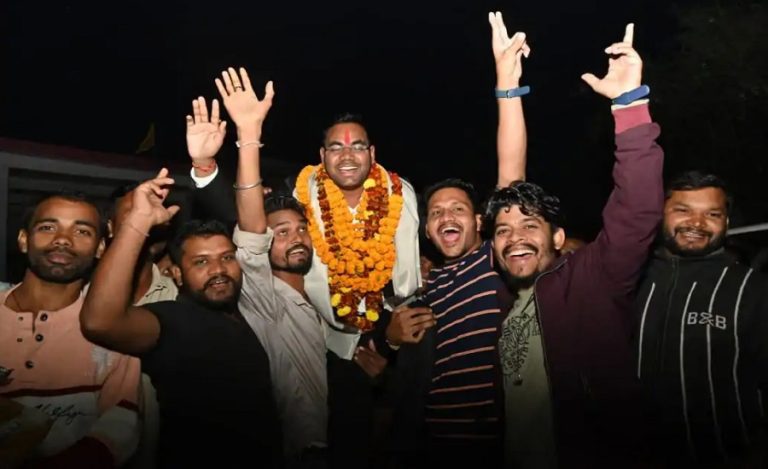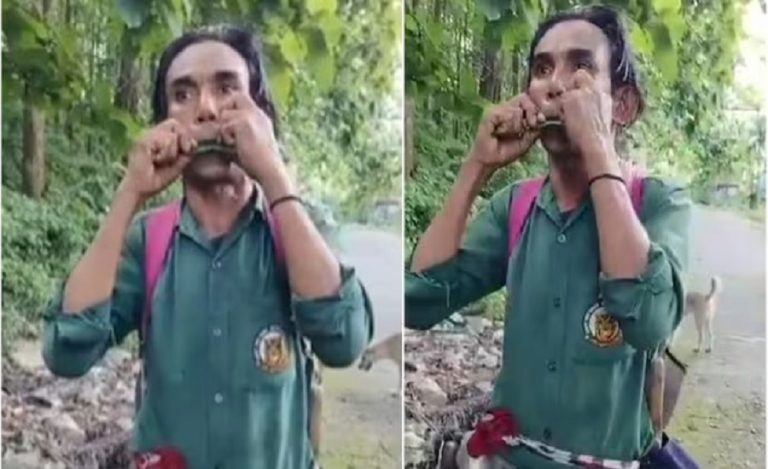The tagline of Anubhuti reads – ‘feel and become one with nature’. Anubhuti is an annual camp organised by the Madhya Pradesh Ecotourism Development Board in coordination with Madhya Pradesh Forest Department for school children and as the tagline suggests, it is organised to make children go closer to nature, live in the midst of nature and become more aware about the natural surroundings.
Anubhuti camp was organized in Maihar Range of Satna Forest division on January 3 and 4. This time, the Maihar range made the regular camp somewhat different by introducing some new ideas and technique. Indian Masterminds spoke to IFS officer Anupam Sharma (SDO Maihar sub-division) to know what new things were added to the Anubhuti camp this time.

ANUBHUTI CAMP
Anubhuti camps are being organized by the Madhya Pradesh Ecotourism Development board and The Department of Forest MP, since 2015-2016 in different forest ranges each year. Around 3.5lakhs students across MP have participated in these camps so far.
Mr. Anupam Sharma told Indian Masterminds, “Usually the focus areas of camps used to be plants, birds and animals. This time we also focused on micro-organism, rocks and lichens in our curriculum in this camp.”
Around 240 students from the Eklavya Model Residential School of Maihar joined the camp along with the school principal and teachers.”
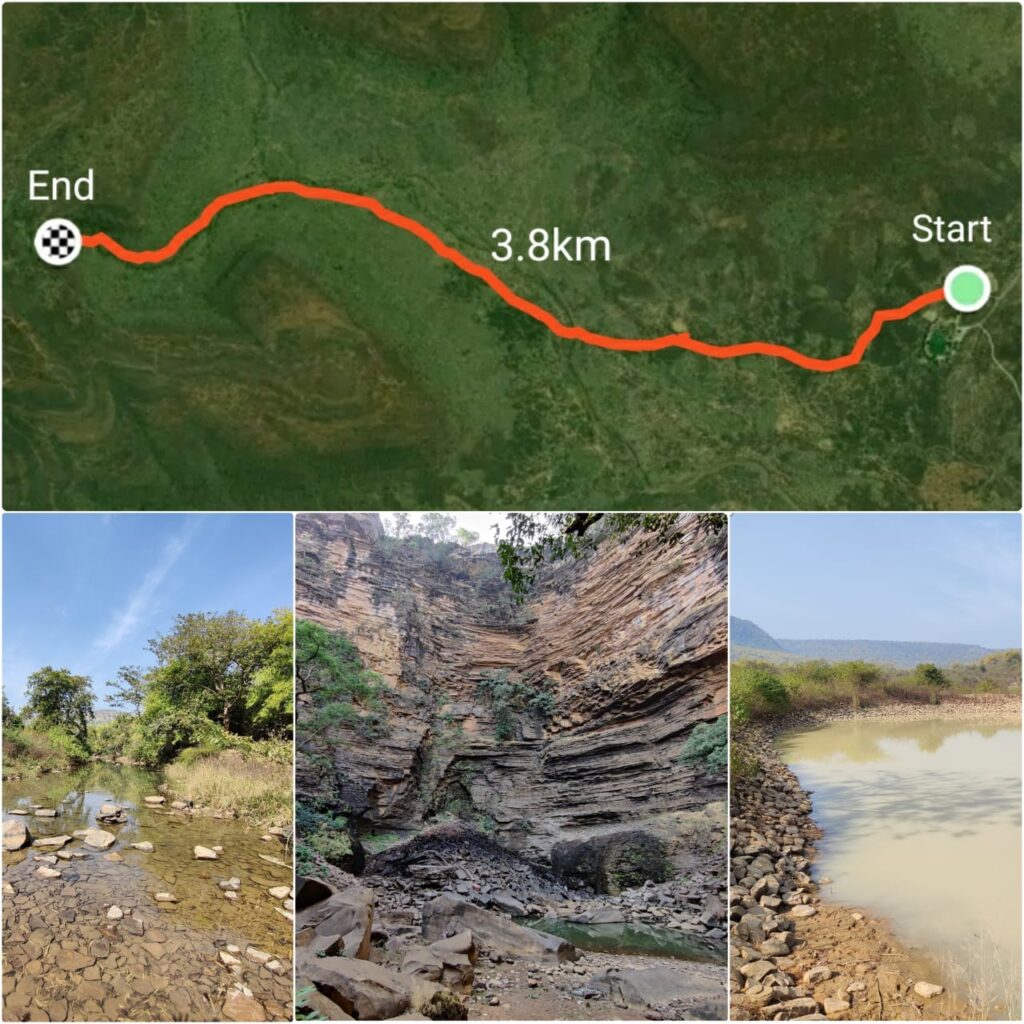
“Under the guidance & support of Mr. Vipin kumar Patel (DFO Satna),this time we decided to introduce some new things in the camp. The selection of a 3.8km track to reach Pannikhoh, inviting experts apart from master trainer, QR coding of tree species, making the camp plastic free are some of the innovative and eco-friendly steps that we took to make to introduce more variety and make the camp more interesting for the students.”
QR CODING OF TREES
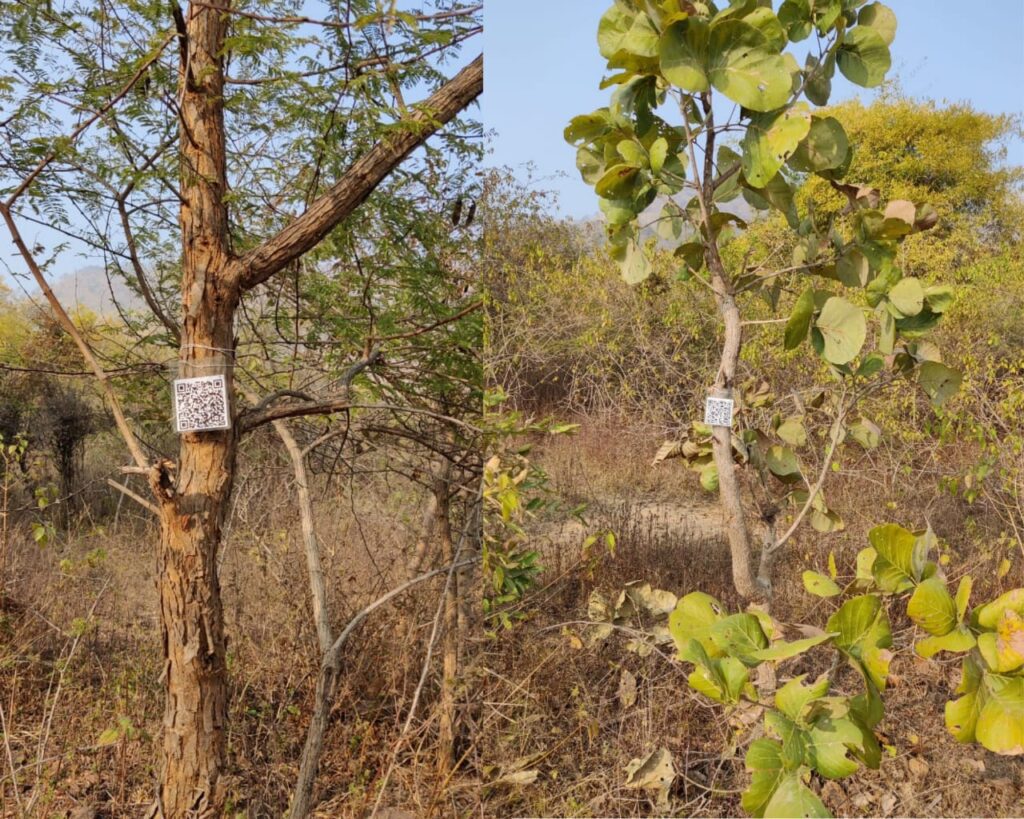
The 3.8 km track from Alha-Akhada to Pannikhoh is a beautiful forest trail. Mr. Sharma elaborated about the trail: “Khoh has waterfalls, rocks and mountains on three sides. The trail to reach it is filled with beautiful spots that have ponds, bamboo areas, cliffs, lichens, river crossing etc.”
He also explained about the QR coding trees: “Inspired by the QR Coding of Trees from earlier experiments like in Lodhi Gardens Delhi, Colleges of Vijayawada Pune, Kochi, and most importantly Excellence school of Satna we thought of introducing QR code technique into this camp. We started with an initial survey to find out which tree species are present along the trail. Then we selected 20 common species. We generated links that have model pics and interesting facts about these species and encoded the link in the form of QR codes. Anyone can scan with their mobile phone and get the information of a tree. 70 such QR codes were generated for trees like Arjuna, Mahua, Tendu, Dhavda, Palash, Amrood, Banyan etc.”
PRESENCE OF BIRD EXPERTS

The January Anubhuti camp also ignited the children’s curiosity by introducing them to birds, vultures, micro-organism, sedimentary structures, etc. Master trainer Mr. Ashish Singh Baghel and wildlife experts like Mr Dilsher Khan, Mr Saumitra Biswas also interacted with students and shared their knowledge of wildlife and habitat with them. Mr. Sharma said, “Their objective was not to load young students with too much information but to ignite the interest in their mind about forest, wildlife and birds.”
The Principal of Eklavya Model School said that this kind of camp should be organized more frequently as they are highly educative and allow children to learn about or eco system on the field, witnessing and experiencing everything firsthand.
FOREST FOOD AND PLASTIC FREE CAMP
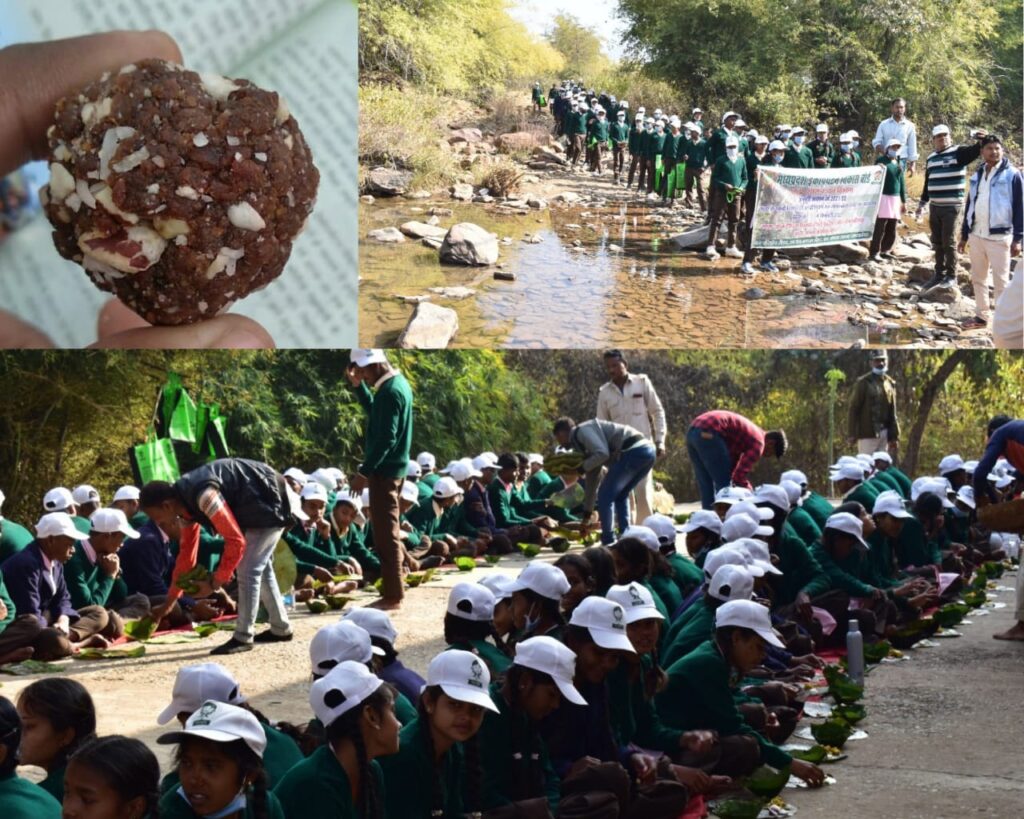
The IFS officer further informed that this time the camp was completely plastic free, and no one was allowed to carry even plastic water bottles. “Also, we promoted the use of plates and bowls made of Mahul leaves. This was done so that the overall ecological impact of Anubhuti could be minimized”, he added.
Mr. Sharma also revealed that small changes were introduced in the food that was given to students also. “Instead of serving just puri and sabji, we introduced food items made of forest produce, too, to give an idea to the students about some of the simple food that we source from the forest.”
Range Officer Satish Chandra added, “We served them delicious mahua laddu which is very rich in nutrition, chironji Kheer, amla candy and pickle, etc., that they ate with great interest.”
Such forest camps for school children not only provide an opportunity to get closer to nature, but also enhance the knowledge and interest of children towards conservation. They also get to know how the forest department functions, the kind of work that they do, besides getting to know about the importance of the adoption of some simple but effective methods for protection of the eco system.


